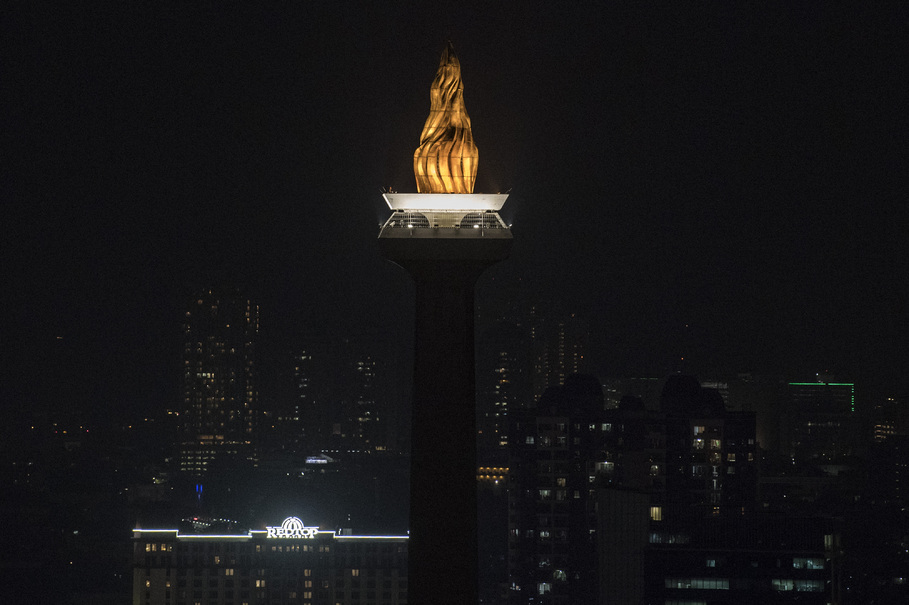
Jakarta. President Joko "Jokowi" Widodo has made a decision to relocate the Indonesian capital outside Java Island and told his ministers to come up with detailed plans for candidate cities over the next few months.
Plans to move the capital have been afoot since the era of President Suharto, due to Jakarta's growing problem of traffic congestion and periodic flooding. These plans have been gathering pace during Jokowi's presidency.
At a cabinet meeting on Monday, the president said of the three alternatives – the capital remaining in Jakarta, moving to an area within a 50-70 kilometer radios outside the city, or away from Java – the latter held the most benefit for the country.
Jokowi has yet to decide which city would become the new capital and tasked his ministers to come up with alternatives.
Government officials previously proposed cities such as Palangkaraya in Central Kalimantan and Makassar in South Sulawesi for the new capital but this remains speculation at this point.
It also requires the passing of new legislation in this regard, so apart from technical considerations, the president must muster majority support in the House of Representatives before he can proceed with this plan.
Criteria
National Development Planning Minister Bambang Brodjonegoro said the new capital would likely to be in the geographic center of Indonesia.
"It would be central from west to east or north to south. To represent justice and encourage development, especially in the eastern part of Indonesia," Bambang said.
Other criteria for the new capital include land availability, water supply, disaster risks, proximity to the coast and foreign territory, and existing infrastructure.
Bambang said to reduce land acquisition and development costs, the government would look at cities where the state or state-owned enterprises have extensive landholdings and where there is vital infrastructure, such as an airport and communication networks, and an adequate supply of potable water, electricity and sanitation.
The new capital should have limited risks of earthquakes, volcanoes, tsunamis, floods, soil erosion and forest and peatland fires.
"We have to find a location that is really minimal in terms of disaster risks," the minister said. "Also, because Indonesia is a maritime nation, the new capital city should be located near the coast, but not necessarily by the sea."
The government will also consider social aspects and look for a place that minimizes conflict potential.
"We hope the people in the area have a welcoming culture toward migrants. Because civil servants will arrive from Jakarta to the new city," Bambang said.
In terms of defense and security, he said the government would ensure that the capital is a significant distance from borders.
National Identity
"We want to have a new city, which besides reflecting Indonesia's identity, is a modern, international-class city, or a smart, green and beautiful city," the minister said.
It will be a departure from Jakarta, which was developed by the Dutch colonial government as a port city for trade.
Indonesia would follow similar concepts implemented by the United States with Washington D.C., Brazil with Brasilia, Australia with Canberra, Malaysia with Putra Jaya and South Korea with Sejong, which were specifically designed as government administration centers.
Bambang said the new capital would accommodate all ministerial offices, the Attorney General's Office, national legislature, Supreme Court and Constitutional Court, headquarters of the National Police and the Indonesian Military (TNI), foreign embassies and representative offices of international organizations.
"The function of financial, trade and industrial services remains in Jakarta. Bank Indonesia, the Financial Services Authority [OJK] and the Investment Coordination Board [BKPM] will remain in Jakarta. With this concept, we will try to emulate some of the best practices implemented by other countries," the minister said.
Jakarta Doomed
Bambang said congestion and flooding were some of the major factors behind the government's decision to move the capital outside Java, hinting that the new region should be free from such problems.
He said traffic congestion in Jakarta currently costs the country about Rp 100 trillion ($7 billion) annually, having increased by more than 50 percent since 2013.
Jakarta is also gradually sinking due to the excessive use of groundwater. Parts of the city have sunk by as much as 60 centimeters between 1989 and 2007 and will pass the 120-centimeter mark soon as groundwater exploitation continues. Sea-level rise of an average of 4-6 cm per year due to climate change could result in much of Jakarta being under water within the next decade.
This further increases the risk of serious flooding in the city. Jakarta experiences a major flood about once every decade, Bambang said.
"Ideally, it should be a minimum of 50 years for a major city," he said.
http://bit.ly/2J2cdm1
April 29, 2019 at 10:01PM
Tidak ada komentar:
Posting Komentar